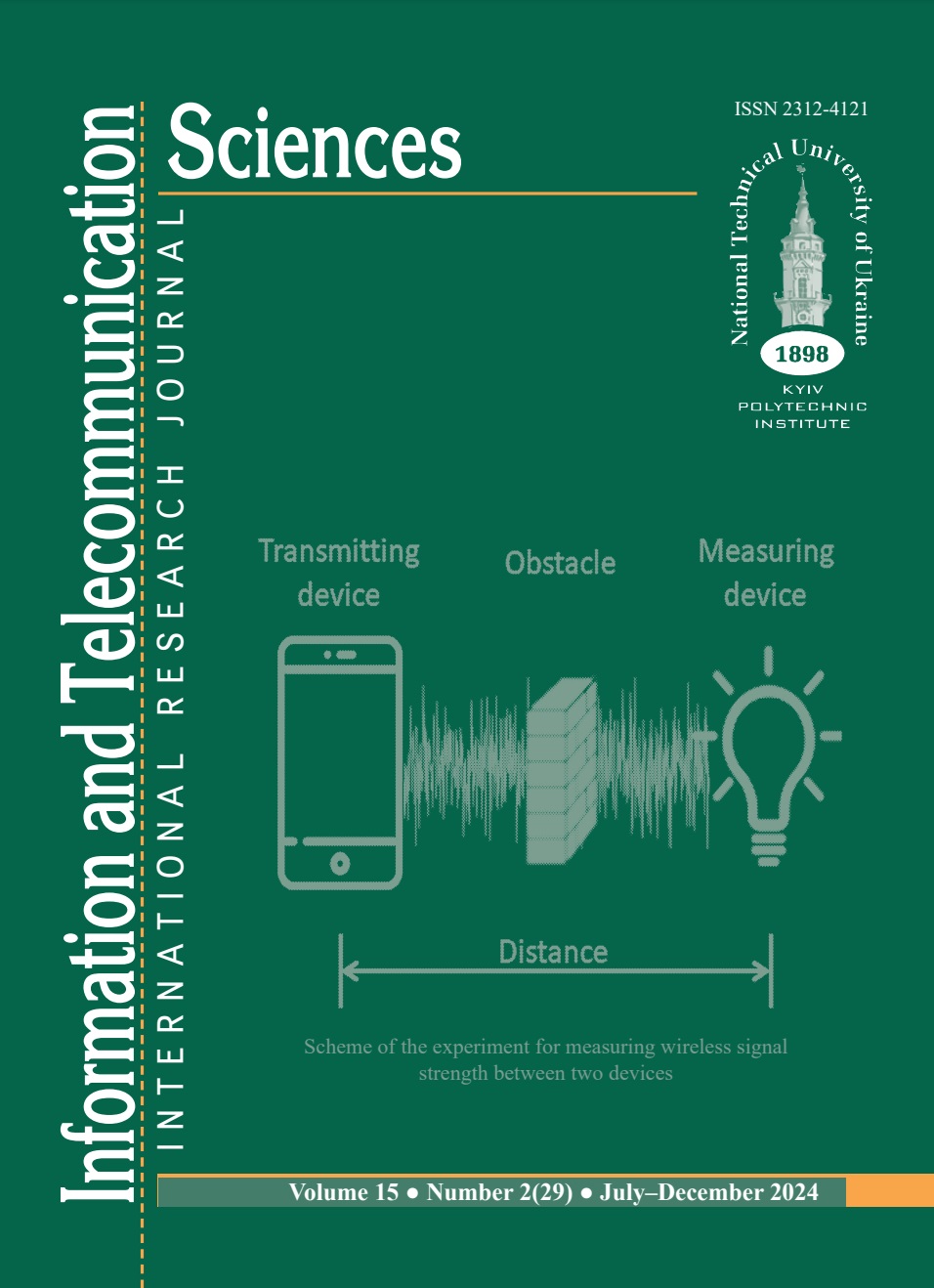OPTIMIZING DISTRIBUTED DATA STORAGE IN MULTI-CLOUD ENVIRONMENTS: ALGORITHMIC APPROACH
DOI:
https://doi.org/10.20535/2411-2976.22024.4-12Keywords:
Cloud computing, multi-cloud environments, data storage, data access, ontological model, optimization function, data security, scalability, cost optimization, resource managementAbstract
Background. Multi-cloud environments present complex challenges in optimal resource allocation and provider selection. Previous research has established a comprehensive ontological model and evaluation criteria for distributed data storage, however efficient provider selection remains a significant challenge due to the dynamic nature of cloud services and the multitude of interdependent factors affecting performance and cost-effectiveness.
Objective. The purpose of the paper is to develop and validate a sophisticated optimization function for cloud provider selection in multi-cloud environments, incorporating both Reinforcement Learning (RL) and Multi-Objective Evolutionary Algorithms (MOEAs) to address the complexity of provider selection while considering multiple competing objectives and constraints.
Methods. The research employs an ontological approach to formalize domain concepts, relationships, and properties in multi-cloud environments. Additionally, an optimization function is developed incorporating multiple weighted criteria derived from the established ontological model. The study focuses on the implementation of the RL algorithm to adapt to dynamic changes in cloud provider characteristics and integration of MOEAs to handle multiple competing objectives as well as providing a comparative analysis with traditional selection methods and alternative optimization approaches for multi-cloud storage settings.
Results. The proposed ontological model successfully formalizes the domain's concepts, relationships, and properties in multi-cloud environments. The optimization function demonstrates effectiveness in selecting the most suitable public cloud provider based on the proposed features, enhancing data management practices automation and decision-making processes.
Conclusions. The developed optimization function and suggested methodology significantly advance the state-of-the-art in distributed multi-cloud data storage. The integration of RL and MOEAs provides a robust framework for addressing the complexity of multi-cloud environments while offering superior performance compared to existing approaches. The methodology successfully balances multiple objectives while adapting to dynamic changes in cloud provider characteristics.
References
Hong, Jiangshui & Dreibholz, Thomas & Schenkel, Joseph & Hu, Jiaxi. (2019). An Overview of Multi-cloud Computing. 10.1007/978-3-030-15035-8_103.
Alonso, J., Orue-Echevarria, L., Casola, V. et al. Understanding the challenges and novel architectural models of multi-cloud native applications – a systematic literature review. J Cloud Comp 12, 6 (2023). https://doi.org/10.1186/s13677-022-00367-6
Tomarchio, O., Calcaterra, D. & Modica, G.D. Cloud resource orchestration in the multi-cloud landscape: a systematic review of existing frameworks. J Cloud Comp 9, 49 (2020). https://doi.org/10.1186/s13677-020-00194-7
T. G. Papaioannou, N. Bonvin, and K. Aberer, “Scalia: An adaptive scheme for efficient multi-cloud storage,” in Proceedings of the International Conference on High Performance Computing, Networking, Storage and Analysis, ser. SC ’12. Los Alamitos, CA, USA: IEEE Computer Society Press, 2012, pp. 20:1–20:10.
Celesti, A., Galletta, A., Fazio, M. and Villari, M., 2019. Towards hybrid multi-cloud storage systems: Understanding how to perform data transfer. Big Data Research, 16, pp.1-17.
Li J, Lin D, Squicciarini AC, Li J, Jia C (2017) Towards privacy preserving storage and retrieval in multiple clouds. IEEE Trans Cloud Comput 5(3): pp. 499–509. https://doi.org/10.1109/TCC.2015. 2485214
Anton Kartashov and Larysa Globa Overview of the Approaches to Managing Distributed Storage and Access to Cloud Data//Proceedings of International Conference on Applied Innovation in IT. Volume 11, Issue 2, pp. 19-29. (DOI:10.25673/112990)
Guang Zheng, Hao Zhang, Yanling Li, Lei Xi, 5G network-oriented hierarchical distributed cloud computing system resource optimization scheduling and allocation, Computer Communications, Volume 164, 2020, pp. 88-99, ISSN 0140-3664, https://doi.org/10.1016/j.comcom.2020.10.005.
Jayanetti, Amanda & Halgamuge, Saman & Buyya, Rajkumar. (2024). A Deep Reinforcement Learning Approach for Cost Optimized Workflow Scheduling in Cloud Computing Environments. 10.48550/arXiv.2408.02926
Downloads
Published
How to Cite
Issue
Section
License
Copyright (c) 2024 Larysa Globa, Anton Kartashov

This work is licensed under a Creative Commons Attribution 4.0 International License.
The ownership of copyright remains with the Authors.
Authors may use their own material in other publications provided that the Journal is acknowledged as the original place of publication and National Technical University of Ukraine “Igor Sikorsky Kyiv Polytechnic Institute” as the Publisher.
ITS articles are published under Creative Commons licence:
- Authors retain copyright and grant the journal right of first publication with the work simultaneously licensed under CC BY 4.0that allows others to share the work with an acknowledgement of the work's authorship and initial publication in this journal.
- Authors are able to enter into separate, additional contractual arrangements for the non-exclusive distribution of the journal's published version of the work (e.g., post it to an institutional repository or publish it in a book), with an acknowledgement of its initial publication in this journal.
- Authors are permitted and encouraged to post their work online (e.g., in institutional repositories or on their website) prior to and during the submission process, as it can lead to productive exchanges, as well as earlier and greater citation of published work.

